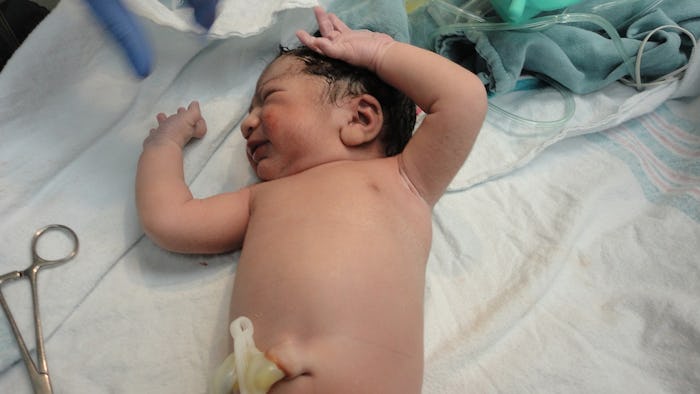Before giving birth to your baby, there are several decisions you and your medical practitioner will discuss. For instance, do you prefer to have a delayed cord-clamping? Will you want your newborn to receive the vitamin K shot? And, if you're having a boy, will he be circumcised? For many parents, myself included, that last topic can be quite a contentious one. Though it may have been commonplace in your parent's or grandparent's generation, you might be giving this decision more consideration than they did. If you opt against it, you may want to know what happens if you don't circumcise your son. Are there any negative consequences if your son doesn't have their foreskin removed?
For my partner, the very mention of circumcision would drain the color from his face. As a biological female, I didn't fully understand his situation, but I could see why it would make him uncomfortable. So, like plenty of parents-to-be, we made a pro and con list. How you reach your decision is entirely up to you, of course. But, if you've reached the conclusion that circumcision isn't something you want your son to experience, then you might be curious about what to expect. So check out what might happen if you don't circumcise your son.
1He's (Barely) In The Minority
As of now, that your son would likely be in the minority if he was circumcised, but it's not as drastic as you'd think. According to Kids Health, the most recent data on circumcision rates shows that between 55 and 65 percent of baby boys undergo the procedure. So your son isn't greatly outnumbered since the statistics imply slightly under half of male newborns are also uncircumcised.
2His Hygiene Remains The Same
Despite what others may tell you, there isn't substantial scientific proof that having a circumcised penis is any cleaner than an uncircumcised penis. As OB-GYN and medical expert Dr. Christiane Northrup told The Huffington Post, "no special cleaning or retraction of the foreskin is necessary because the foreskin is attached to the underlying penile tissue by a normal membrane." Though you should still make sure to follow healthy hygiene habits, there seems to be no significant difference in cleansing.
3He Won't Be Punished
When talking to several of my friends who have boys, they assumed that circumcisions were borderline mandatory. But the American Academy of Pediatrics (AAP) stated that the decision to circumcise is entirely up to the parents. Basically, neither doctors nor hospitals have a say in whether or not your son gets circumcised.
4He May Get Urinary Tract Infections
Similar to the idea that uncircumcised penises are less hygienic, many believe that forgoing circumcision leads to urinary problems, such as urinary tract infections (UTIs). As Parents noted, there is an increase of UTIs in uncircumcised males, but "the risk for a UTI is still less than one percent." So even though there's a difference, it's very slight.
5He Might Need An Explanation
For most parents, the decision to circumcise or not occurs when their son is still an infant. But what happens when your child starts asking questions about his body? As Kids Health noted, keeping an open line of communication about hygiene, anatomy, and cultural beliefs is healthy for all parents and children, regardless of whether or not they're circumcised. So keep in mind that this may be a conversation you'll need to have with your son in the future.
6He Won't Lose Any Feeling Down There
Some people believe that circumcised men experience less sexual responsiveness than their uncircumcised counterparts. But, as pediatrician Dr. Douglas Diekema told Parents, there is not enough evidence to prove uncircumcised males have increased sensitivity. Unlike hygienic practices, this might not be something you end up discussing with your son, but it's helpful to know the facts.
